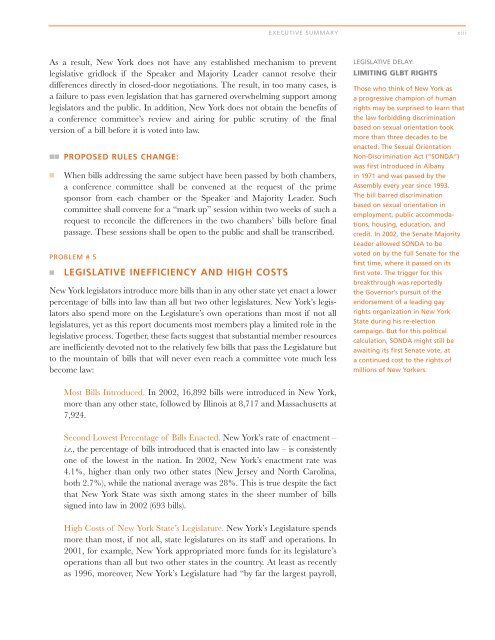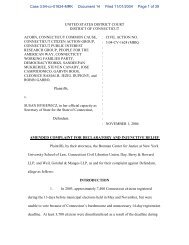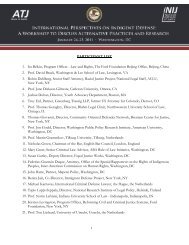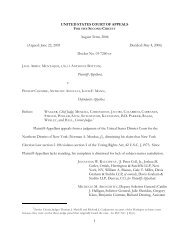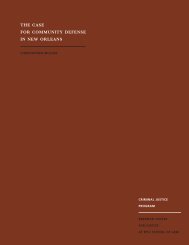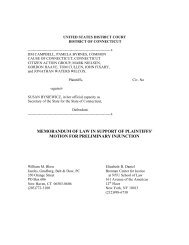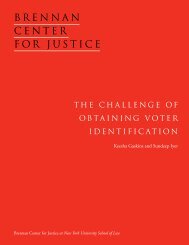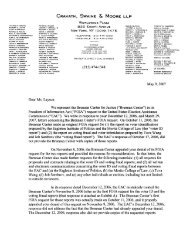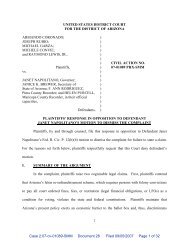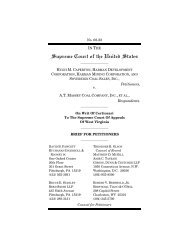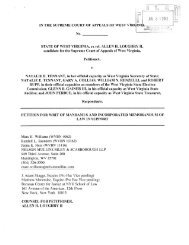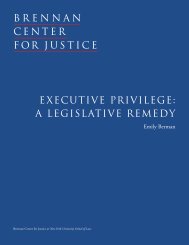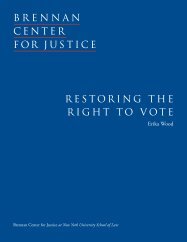THE NEW YORK STATE LEGISLATIVE PROCESS: AN ...
THE NEW YORK STATE LEGISLATIVE PROCESS: AN ...
THE NEW YORK STATE LEGISLATIVE PROCESS: AN ...
You also want an ePaper? Increase the reach of your titles
YUMPU automatically turns print PDFs into web optimized ePapers that Google loves.
As a result, New York does not have any established mechanism to prevent<br />
legislative gridlock if the Speaker and Majority Leader cannot resolve their<br />
differences directly in closed-door negotiations. The result, in too many cases, is<br />
a failure to pass even legislation that has garnered overwhelming support among<br />
legislators and the public. In addition, New York does not obtain the benefits of<br />
a conference committee’s review and airing for public scrutiny of the final<br />
version of a bill before it is voted into law.<br />
■■ PROPOSED RULES CH<strong>AN</strong>GE:<br />
■ When bills addressing the same subject have been passed by both chambers,<br />
a conference committee shall be convened at the request of the prime<br />
sponsor from each chamber or the Speaker and Majority Leader. Such<br />
committee shall convene for a “mark up” session within two weeks of such a<br />
request to reconcile the differences in the two chambers’ bills before final<br />
passage. These sessions shall be open to the public and shall be transcribed.<br />
PROBLEM # 5<br />
■ <strong>LEGISLATIVE</strong> INEFFICIENCY <strong>AN</strong>D HIGH COSTS<br />
New York legislators introduce more bills than in any other state yet enact a lower<br />
percentage of bills into law than all but two other legislatures. New York’s legislators<br />
also spend more on the Legislature’s own operations than most if not all<br />
legislatures, yet as this report documents most members play a limited role in the<br />
legislative process. Together, these facts suggest that substantial member resources<br />
are inefficiently devoted not to the relatively few bills that pass the Legislature but<br />
to the mountain of bills that will never even reach a committee vote much less<br />
become law:<br />
Most Bills Introduced. In 2002, 16,892 bills were introduced in New York,<br />
more than any other state, followed by Illinois at 8,717 and Massachusetts at<br />
7,924.<br />
Second Lowest Percentage of Bills Enacted. New York’s rate of enactment –<br />
i.e., the percentage of bills introduced that is enacted into law – is consistently<br />
one of the lowest in the nation. In 2002, New York’s enactment rate was<br />
4.1%, higher than only two other states (New Jersey and North Carolina,<br />
both 2.7%), while the national average was 28%. This is true despite the fact<br />
that New York State was sixth among states in the sheer number of bills<br />
signed into law in 2002 (693 bills).<br />
High Costs of New York State’s Legislature. New York’s Legislature spends<br />
more than most, if not all, state legislatures on its staff and operations. In<br />
2001, for example, New York appropriated more funds for its legislature’s<br />
operations than all but two other states in the country. At least as recently<br />
as 1996, moreover, New York’s Legislature had “by far the largest payroll,<br />
EXECUTIVE SUMMARY xiii<br />
<strong>LEGISLATIVE</strong> DELAY:<br />
LIMITING GLBT RIGHTS<br />
Those who think of New York as<br />
a progressive champion of human<br />
rights may be surprised to learn that<br />
the law forbidding discrimination<br />
based on sexual orientation took<br />
more than three decades to be<br />
enacted. The Sexual Orientation<br />
Non-Discrimination Act (“SONDA”)<br />
was first introduced in Albany<br />
in 1971 and was passed by the<br />
Assembly every year since 1993.<br />
The bill barred discrimination<br />
based on sexual orientation in<br />
employment, public accommodations,<br />
housing, education, and<br />
credit. In 2002, the Senate Majority<br />
Leader allowed SONDA to be<br />
voted on by the full Senate for the<br />
first time, where it passed on its<br />
first vote. The trigger for this<br />
breakthrough was reportedly<br />
the Governor’s pursuit of the<br />
endorsement of a leading gay<br />
rights organization in New York<br />
State during his re-election<br />
campaign. But for this political<br />
calculation, SONDA might still be<br />
awaiting its first Senate vote, at<br />
a continued cost to the rights of<br />
millions of New Yorkers.


